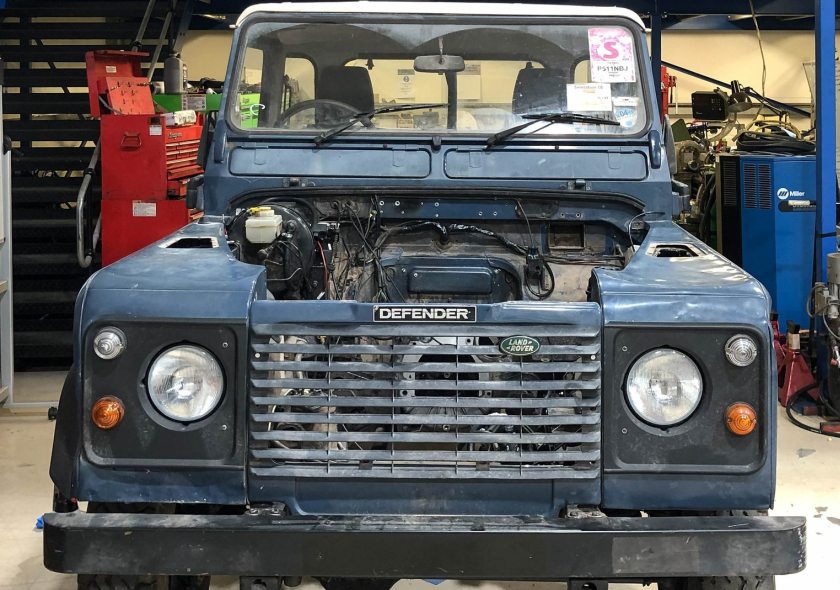
Scientists are working with the dairy farm that hosts the Glastonbury Festival in a bid to turn it greener by electrifying its Land Rover vehicles.
Worthy Farm is a 900-acre working dairy farm when it is not hosting one of the world's most famous music festivals.
But with this year's Glastonbury cancelled due to the Covid-19 crisis, the farm is keeping busy by converting its four Land Rovers from diesel engines into electric.
It is part of a £350,000 project in collaboration with Cardiff University and Electrogenic, a firm specialising in converting classic vehicles into 100% electric.
Worthy Farm's vehicles will be monitored using state-of-the-art software to assess performance against cost and environmental impact.
In the UK, Land Rovers are widely used by farmers due to their performance and longevity; however, almost all of them burn diesel, often with poor efficiency.
There is currently no electric-powered version of the Land Rover that is close to being available to the market, whilst the off-road energy usage of four-wheel drive vehicles is poorly understood.
Worthy Farm has already introduced solar panels and an anaerobic digester, both of which help them to create renewable energy that supports the farm and elements of Glastonbury Festival.
That power will also be used to charge the new electric Land Rovers.
As part of the project, researchers plan to invite farmers from across the UK to Worthy Farm to experience the electrification process and to encourage them to consider converting their own vehicles.
Once proof-of-concept is demonstrated in this first phase of the project, the team hope to move to a larger trial involving many more vehicles.
Professor Carol Featherston, from Cardiff University said: “Most farms have a number of vehicles undertaking different tasks at any one time.
"Being able to gather data on actual vehicle usage patterns, energy usage and charging requirements on a working farm as part of this project will enable us to develop a blueprint for how four-wheel drive vehicles can be converted to electric in a cost-effective way with as little environmental impact as possible.”
"By encouraging farmers to engage with us, we hope to lay the foundations for widespread vehicle conversion across the country."
The vehicles will be tested on the farm throughout the winter, working every day in the worst that the weather can throw at them.
Steve Drummond, from Electrogenic said: “We have put together two specifications based on our experience, and deploying them on a working farm will give a real insight into how to keep costs down by not over-engineering the conversion.
“The end-product will be a fully documented, cost-effective way of going off road all-electric.”
